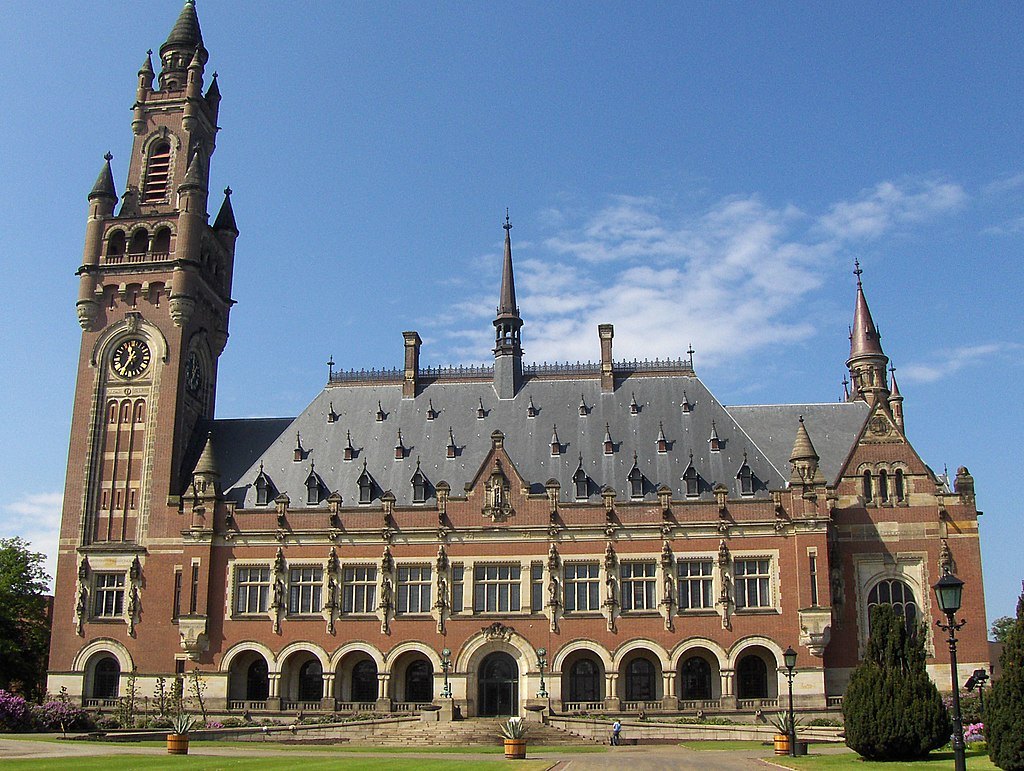Russia Sanctions: Upcoming Deadlines Loom on the Horizon
When it comes to Russia sanctions, deadlines do not seem to be this White House’s strong suit. Only three months ago, on Oct. 1, the Trump administration blew through one of the first sanctions deadlines imposed by the Countering America’s Adversaries Through Sanctions Act (“CAATSA”).
Published by The Lawfare Institute
in Cooperation With

When it comes to Russia sanctions, deadlines do not seem to be this White House’s strong suit. Only three months ago, on Oct. 1, the Trump administration blew through one of the first sanctions deadlines imposed by the Countering America’s Adversaries Through Sanctions Act (“CAATSA”). The bill—which required the Trump administration to impose significant new sanctions on Russia—was discussed in this earlier post. And although the requisite steps were eventually taken, several influential senators, especially Sen. Ben Cardin (D-Md.), noticed the delay.
Which brings us to January 2018. The Russia sanctions bill is replete with deadlines and several are rapidly approaching. Specifically, each 180-day deadline comes due on January 29, and several reports suggest that Senate Democrats will be looking at these deadlines to judge the White House’s commitment to complying with the bill. Judging by the legislation he recently sponsored to deter Russian (and other foreign) election interference, Sen. Marco Rubio (R-FL) may also be watching. And given their concerns about future sanctions—and their apparently-imminent legal challenge—Russia may be watching, too.
You should keep an eye on the following interesting items:
Military and Intelligence-related Sanctions
Section 231 of CAATSA (22 U.S.C. § 9525) requires the president to impose sanctions against components of the Russian defense and intelligence sectors or their facilitators:
(a) In General. On and after the date that is 180 days after the date of the enactment of this Act, the President shall impose five or more of the sanctions described in section 235 with respect to a person the President determines knowingly, on or after such date of enactment, engages in a significant transaction with a person that is part of, or operates for or on behalf of, the defense or intelligence sectors of the Government of the Russian Federation, including the Main Intelligence Agency of the General Staff of the Armed Forces of the Russian Federation or the Federal Security Service of the Russian Federation.
The final version of the bill—like previous versions—employs the menu model of sanctions, so President Trump gets to pick which five out of 12 potential measures he would like to impose. While some of the potential measures (all of which are codified at 22 U.S.C. § 9529) may be rather tame (e.g., restrictions on Export-Import Bank assistance), others are quite serious, and at least one or two out of the five will likely bite.
As discussed previously, the bill imposes a negligence standard by defining “knowingly” so that it captures persons with both actual knowledge of the relevant conduct or circumstance as well as persons who “should have known.” Persons who should have known that they were engaging in “a significant transaction” (undefined in the bill) with a person who operates on behalf of the Russian intelligence sector are fair game. Interestingly, a recent report indicates that “Prime Minister Dmitry Medvedev had signed a decree that would exempt Russian state companies from the requirement to disclose the names of their contractors.”
Notably, the bill includes a waiver provision. Although the precise language of the waiver provision raises several interesting questions, it seems clear that the president could use to avoid imposing otherwise painful sanctions. However, making use of this provision would require President Trump to make several representations that could be difficult to justify:
(b) Application of New Sanctions. The President may waive the initial application of sanctions under subsection (a) with respect to a person only if the President submits to the appropriate congressional committees--
(1) a written determination that the waiver--
(A) is in the vital national security interests of the United States; or
(B) will further the enforcement of this title; and
(2) a certification that the Government of the Russian Federation has made significant efforts to reduce the number and intensity of cyber intrusions conducted by that Government.
Should the president decide to employ the waiver provision, interesting hearings or congressional committee reports would invariably follow.
Oligarchs List
Section 241 of CAATSA calls for the administration to submit a report on “[s]enior foreign political figures and oligarchs:”
(a) In General. Not later than 180 days after the date of the enactment of this Act, the Secretary of the Treasury, in consultation with the Director of National Intelligence and the Secretary of State, shall submit to the appropriate congressional committees a detailed report on the following:
(1) Senior foreign political figures and oligarchs in the Russian Federation, including the following:
(A) An identification of the most significant senior foreign political figures and oligarchs in the Russian Federation, as determined by their closeness to the Russian regime and their net worth.
(B) An assessment of the relationship between individuals identified under subparagraph (A) and President Vladimir Putin or other members of the Russian ruling elite.
(C) An identification of any indices of corruption with respect to those individuals.(D) The estimated net worth and known sources of income of those individuals and their family members (including spouses, children, parents, and siblings), including assets, investments, other business interests, and relevant beneficial ownership information.
(E) An identification of the non-Russian business affiliations of those individuals.
(2) Russian parastatal entities . . .
(3) The exposure of key economic sectors of the United States to Russian politically exposed persons and parastatal entities, including, at a minimum, the banking, securities, insurance,
(4) The likely effects of imposing debt and equity restrictions on Russian parastatal entities, as well as the anticipated effects of [sanctioning Russian parastatal entities].
(5) The potential impacts of imposing secondary sanctions with respect to Russian oligarchs, Russian state-owned enterprises, and Russian parastatal entities . . . .
Although the term “oligarch” is not further defined in the bill, “[s]enior political figure” is defined by reference to the Financial Crimes Enforcement Network’s regulations (31 C.F.R. 1010.605). Notably, that definition includes not only current and former senior government officials, but also their immediate family members (including in-laws) and persons “widely and publicly known” to be “close associate[s].”
This report may not seem like much but, judging from the reactions we are already seeing, it is likely to be a big deal. Recent reporting notes that “Russian businessmen have approached former Treasury and State Department officials with experience in sanctions for help staying off the list.” According to one commentator, “[s]ome law firms have reportedly advised oligarchs to divorce their wives and register all their assets in the names of their former spouses as a way of keeping them safe.”
For its part, the Russian government appears not to be wasting any time exploring what it can do to lessen any negative effects. Recent reports suggest that Russian officials (including Putin himself) and wealthy Russian citizens alike are trying to facilitate the repatriation of assets in anticipation of the list through a capital amnesty program. (Unlike earlier repatriation efforts, the one the Kremlin is reportedly exploring now “waves Russia’s 13 percent tax on personal income.”) Additionally, demand has reportedly “soared for a planned Eurobond that sources said is meant to help Russians bring money back home in a way that would protect them from being damaged by potential new sanctions.” Of course, that doesn’t mean the repatriation efforts—which Putin may support for other reasons—will work; Malta may offer a tempting way for at-risk oligarchs to diversity their holdings.
To be sure, being included in the Section 241 oligarch’s list is not the equivalent of a designation. Nevertheless, the reactions we are seeing suggest that wealthy Russians fear the taint of identification. Indeed, as Anders Åslund and Ambassador Daniel Fried, former coordinator for sanctions policy at the State Department explain:
Judging by the decibel level in Moscow, and intense activity by Washington lobbyists on behalf of Russian clients, many in the Russian elite would hate to be fingered as being creatures of Russian President Vladimir Putin. It’s clear why: Being named in this report could lead to future U.S. sanctions, and the threat of being cut off from the dollar and American banking system can be crippling; even without sanctions, being listed would make it harder to do business in the West.
If such an effect is unintentional or counterproductive, it may be a symptom of broader de-risking trends (discussed in the Iran context here).
Debt Report
Section 242 of CAATSA calls for the Secretary of the Treasury, in consultation with the Director of National Intelligence and the Secretary of State, to submit a report on the potential impact of expanding existing restrictions on the issuance debt or equity, “to include sovereign debt and the full range of derivative products.” This report may not seem significant on its face but given the Cardin Report’s suggestion that sovereign debt allows the Kremlin to sidestep the full force of sanctions, this report could portend future sanctions discussions. As Bloomberg recently noted:
Russian officials say they’re not worried about possible new U.S. sanctions on the country’s sovereign debt. Economists aren’t buying it. Borrowing costs will rise by between 50 basis points and 150 basis points if the U.S. extends sanctions to bar its citizens from buying new Russian domestic government debt, according to the majority of respondents in a Bloomberg survey. . . . The [Russian] government largely relies on ruble debt sales to cover its budget shortfall, which this year is expected to be about 2 percent of gross-domestic product.





